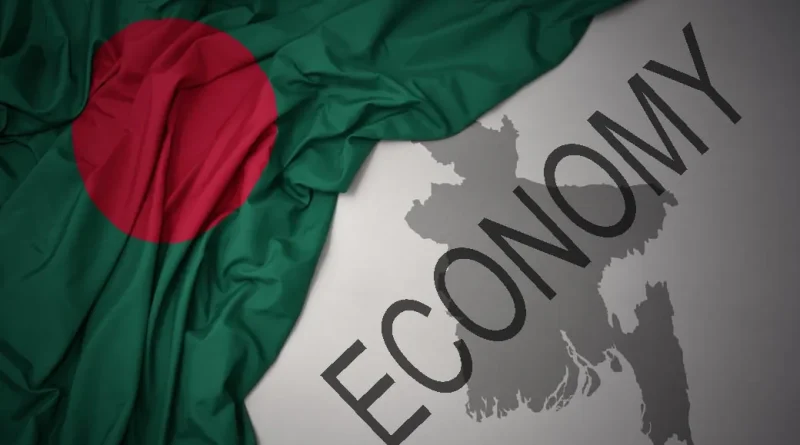Bangladesh’s economy closed the 2024–25 fiscal year with sluggish growth but showed initial signs of recovery in the final quarter, according to the Metropolitan Chamber of Commerce and Industry, Dhaka (MCCI).
In its April–June 2025 quarterly review, released Tuesday, the MCCI said rising exports and remittance inflows had helped stabilise foreign currency reserves and injected “some vitality” into the economy. Bangladesh Bureau of Statistics (BBS) data showed GDP growth inching up to 4.86 percent in the third quarter from 4.48 percent in the second, while inflation eased to 8.48 percent in June. However, average annual inflation remained elevated at 10.03 percent.
Structural Weaknesses Remain
The chamber warned that weak private sector credit growth, lower capital machinery imports, falling investment, and long-standing banking sector irregularities continue to restrain economic momentum. It stressed that reforms in financial governance are essential to restore confidence and drive sustainable growth.
Policy and Market Outlook
For the first quarter of FY26, the MCCI projected higher exports and imports, with remittances and reserves likely to dip in July before rebounding in the following two months. Inflation is expected to ease gradually through September.
However, the chamber criticised the government’s recent 33 percent hike in gas tariffs for new industries, warning it could further dampen investment at a time of high interest rates, political uncertainty, and stubborn inflation.
Currency and Reserves
The Bangladeshi Taka depreciated 3.89 percent year-on-year against the US dollar, ending FY25 at Tk 122.77 in the interbank market. The Bangladesh Bank sold $503.38 million in the foreign exchange market during the fiscal year—down sharply from $9.42 billion in FY24—helped by steady remittance inflows and lower import payments.
Development Spending Slows
The MCCI flagged the implementation rate of the Annual Development Programme (ADP) as a concern, with FY25 execution at a 20-year low of 67.85 percent, compared to 80.63 percent a year earlier. It attributed the slowdown to bureaucratic delays, tighter spending controls, and reduced approval of large projects amid global economic uncertainty.






